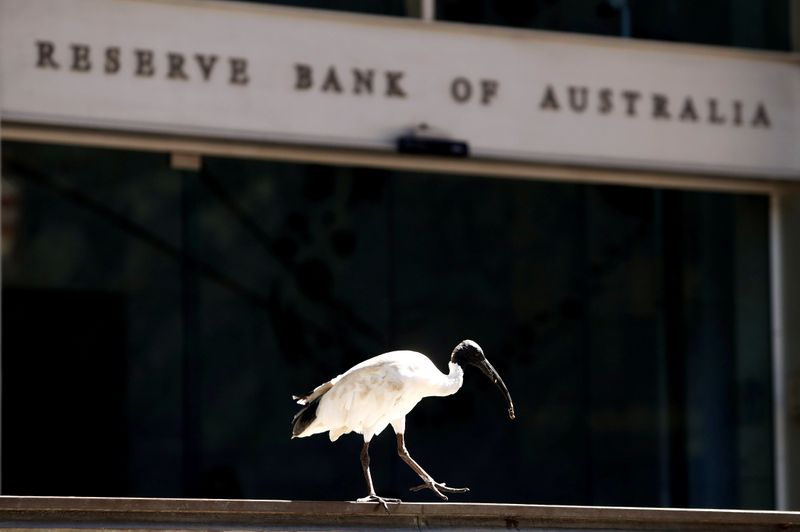By Stanley White and Terje Solsvik
HONG KONG/LONDON (Reuters) - Central banks worldwide acted to shore up money markets after cratering share prices drove a rush for cash, hitting many regional currencies and threatening a surge in short-term borrowing costs.
In China, which bore the brunt of the economic fallout from the coronavirus in the first few months of 2020, authorities late on Friday cut banks' reserve requirements for the second time this year.
With most developed economies now also moving into partial shutdowns as the epidemic tightens its global grip, Norway and Sweden announced far-reaching stimulus packages as European trading got under way.
European Central Bank President Christine Lagarde, meanwhile, drew fire for not doing more after the ECB announced relatively modest measures on Thursday, when the Federal Reserve injected half a trillion dollars into the U.S. banking system.
"We should see more action from central banks because what we need here is a short-term liquidity bridge," said Mohammed Apabhai, head of Asian trading strategy for Citigroup (NYSE:C). "The issue is that if we don't see that, then this situation risks becoming a more systemic problem."
Early on Friday, Japan's central bank pledged to release cash into the markets by buying 200 billion yen ($1.90 billion) of five-to 10-year government bonds and injecting a further 1.5 trillion yen in two-week loans.
Sources told Reuters that Japanese government and central bank officials were more seriously weighing the risk of cancellation of the Olympic Games, scheduled for Tokyo in July, when making economic projections for this year.
China's central bank said it was cutting target-compliant banks' reserve requirement ratios (RRR) by 50-100 basis points, releasing 550 billion yuan (62.7 billion pounds) to shore up the economy.
Norway's central bank joined the growing list of monetary authorities that have slashed borrowing costs in recent days with an unexpected half-point cut in its key policy rate. It also offered the first in a series of emergency three-month loans to the banking industry.
Sweden's central bank said it would lend up to 500 billion Swedish crowns ($51 billion) to local firms via banks to ensure they had access to credit.
Some companies have begun hoarding cash and accessing credit lines as they look to balance the need to pay wages and overheads as their income is hit by the drop in everyday activity.
Air France KLM (PA:AIRF), like other major airlines heavily exposed to global flight restrictions imposed to try to limit the coronavirus's spread, said it had drawn down on 1.1 billion euros ($1.2 billion) worth of its revolving credit facility to help its financial position.
GIANT FED STICKING PLASTER?
The succession of central bank moves came after the U.S. Federal Reserve on Thursday surprised markets by injecting $500 billion into the financial system, and pledged to add $1 trillion more.
That unscheduled offer of effectively unlimited dollars came as U.S. stocks plunged nearly 10% in their biggest one-day losses since the 1987 market crash and marked an attempt to avoid the credit market paralysis that occurred during the 2008 global financial crisis.
Heartened by the Fed's cash bonanza, European stock markets (STOXX) on Friday clawed their way tentatively back from their worst day ever while the dollar posted broad gains and U.S stock index futures jumped.
But world stocks (MIWD00000PUS) remained on course for their worst week since the financial crisis, and deep-seated concerns about Italy - the epicentre of Europe's coronavirus outbreak - extended losses for its government bonds (IT10YT=RR) after their worst day in nine years. [L8N2B61UB]
In a foretaste of what may be to come for other countries at the sharp end of the epidemic, China's exports contracted sharply in January and February amid massive disruptions to business operations and supply chains, data showed.
The European Central Bank gave support on Thursday by offering banks loans with rates as low as minus 0.75%, below the ECB's minus 0.5% deposit rate, and promised to increase bond purchases.
However, it did not cut benchmark interest rates as many investors had expected, and President Lagarde faced criticism for saying it was not the central bank's job to help virus-stricken euro zone countries struggling in the debt markets.
In Tokyo, sources familiar with the Bank of Japan's thinking said it might take further action next week by topping up purchases of commercial paper and corporate bonds.
Ayako Sera, market strategist at Sumitomo Mitsui Trust Bank in Tokyo, said such moves were a possibility. "But this only benefits large companies. Something else is needed to direct support to small firms," Sera added
Earlier in Asia, Indonesia's central bank bought 6 trillion rupiah ($405 million) of government bonds in an auction, after Australia's central bank injected A$8.8 billion ($5.52 billion), an unusually large sum, into its financial system.

In South Korea, like Italy on the frontline of the outbreak, the finance ministry and met and agreed to cooperate with its central bank, following speculation that an emergency interest rate cut